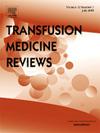识别CAR - t细胞治疗疗效和安全性的修饰因子:系统评价和个体患者数据荟萃分析
IF 2.5
2区 医学
Q2 HEMATOLOGY
引用次数: 0
摘要
CAR - t细胞疗法对复发/难治性血液恶性肿瘤有效,但由于疗效和安全性结果的异质性,其使用受到了限制。我们对血液恶性肿瘤患者的CAR - t细胞治疗进行了个体患者数据荟萃分析(IPDMA),以探讨患者水平的因素是否会改变治疗疗效/安全性。我们检索了MEDLINE、Embase和Cochrane CENTRAL的相关试验。从每个纳入的试验中收集和汇总IPD,并探讨潜在修饰剂分层中结果的流行程度。我们的主要结局是完全缓解,次要结局是细胞因子释放综合征(CRS)和免疫效应细胞相关神经毒性综合征(ICANS)。我们确定了89项试验,包括2331例IPDMA患者。完全缓解比例根据癌症类型从25%到75%不等。与未接受桥接治疗的患者相比,接受桥接治疗的患者完全缓解率降低(34% vs 58%, RR:0.55, 95% CI:0.30-0.98),自体细胞源与异体细胞源相比,完全缓解率降低(53% vs 67%, RR:0.61, 95% CI:0.43-0.87)。与单独靶向CD19的CAR - t细胞疗法相比,将CD19靶向与其他靶点(如CD20、CD22、CD30、CD33、LeY、NKG2D或BCMA)结合的疗法具有更高的完全缓解率(72% vs 58%, RR:1.69, 95% CI:1.15-2.50)。与异体细胞源相比,自体细胞源的ICANS风险增加(24% vs 3%, RR:10.48, 95% CI:1.87-58.57)。CAR - t细胞治疗在特定癌症类型中的安全性和有效性也受到修饰因子的影响,包括桥接治疗、CAR - t细胞来源、CAR - t细胞靶点、性别、年龄、细胞输注次数、共刺激域和剂量。本文章由计算机程序翻译,如有差异,请以英文原文为准。
Identifying Modifiers of CAR T-Cell Therapeutic Efficacy and Safety: A Systematic Review and Individual Patient Data Meta-Analysis
CAR T-cell therapy is effective in relapsed/refractory hematologic malignancies, but its use has been tempered by heterogeneity in response and safety outcomes. We performed individual patient data meta-analysis (IPDMA) of CAR T-cell therapy in patients with hematologic malignancies to explore whether patient-level factors modify therapeutic efficacy/safety. We searched MEDLINE, Embase, and Cochrane CENTRAL for relevant trials. IPD was collected and pooled from each included trial, and prevalence of outcomes among strata of potential modifiers was explored. Our primary outcome was complete response, and the secondary outcomes were cytokine release syndrome (CRS), and immune effector cell associated neurotoxicity syndrome (ICANS). We identified 89 trials comprising 2,331 patients for the IPDMA. Complete response proportion ranged from 25% to 75% depending on cancer type. Decreased complete response was seen in those that received bridging therapy compared to those that did not (34% vs 58%, RR:0.55, 95% CI:0.30-0.98), as well as with autologous cell sources compared to allogeneic sources (53% vs 67%, RR:0.61, 95% CI:0.43-0.87). Compared to CAR T-cell therapies targeting CD19 alone, therapies that combine CD19 targeting with additional targets such as CD20, CD22, CD30, CD33, LeY, NKG2D, or BCMA were associated with higher complete response rates (72% vs 58%, RR:1.69, 95% CI:1.15-2.50). Autologous cell sources demonstrated increased risk of ICANS relative to allogeneic sources (24% vs 3%, RR:10.48, 95% CI:1.87-58.57). Safety and efficacy of CAR T-cell therapy within specific cancer types was also affected by modifiers including bridging therapy, CAR T-cell source, CAR T-cell target, sex, age, number of cell infusions, co-stimulatory domain, and dose.
求助全文
通过发布文献求助,成功后即可免费获取论文全文。
去求助
来源期刊

Transfusion Medicine Reviews
医学-血液学
CiteScore
11.60
自引率
0.00%
发文量
40
审稿时长
21 days
期刊介绍:
Transfusion Medicine Reviews provides an international forum in English for the publication of scholarly work devoted to the various sub-disciplines that comprise Transfusion Medicine including hemostasis and thrombosis and cellular therapies. The scope of the journal encompasses basic science, practical aspects, laboratory developments, clinical indications, and adverse effects.
 求助内容:
求助内容: 应助结果提醒方式:
应助结果提醒方式:


